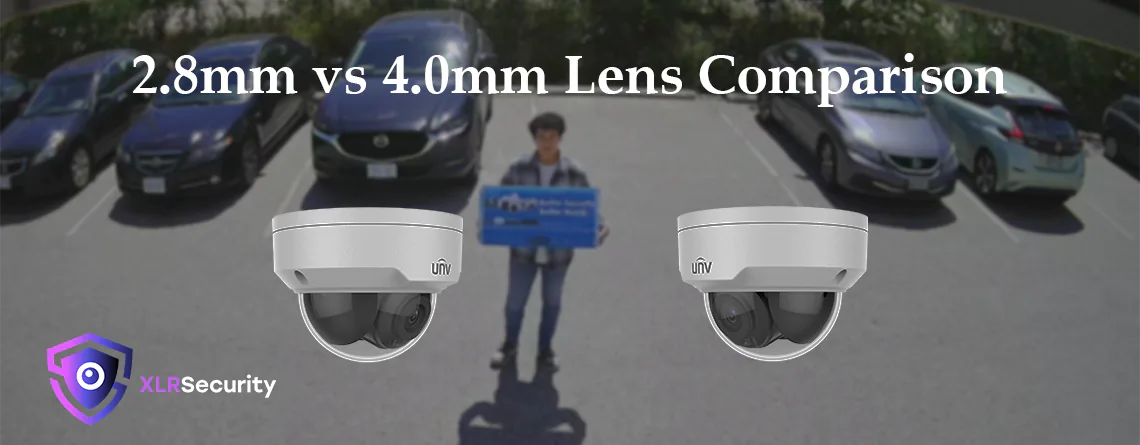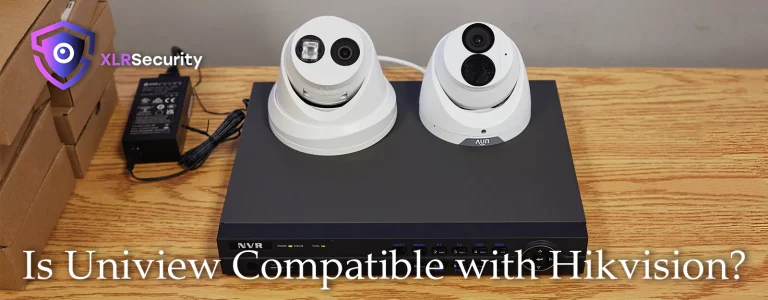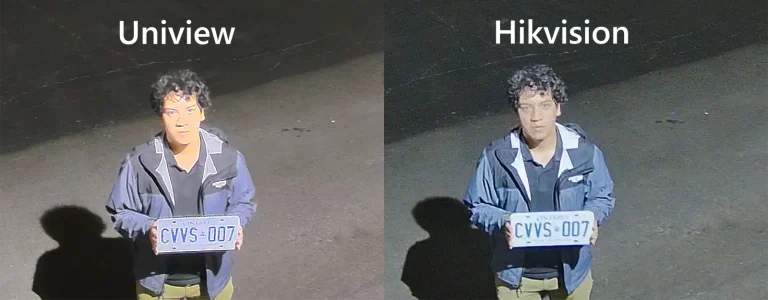Security Camera Lens Types
In the security industry today, there are two common lens types used: Fixed Lens and Varifocal Lens. For fixed lenses, you will often find them in two common varieties; 2.8mm and 4.0mm. In this case, the amount of mm is referring to the focal length of the camera lens. A shorter focal length (2.8mm) results in a wider angle shot, while a longer focal length (4.0mm) results in a narrower shot.
Next, we have the varifocal lens type. When a security camera with a varifocal lens type is chosen, the focal length can be adjusted to capture the angle of choice. Most commonly these will be either 2.8-12mm or 2.7-13.5mm lenses.
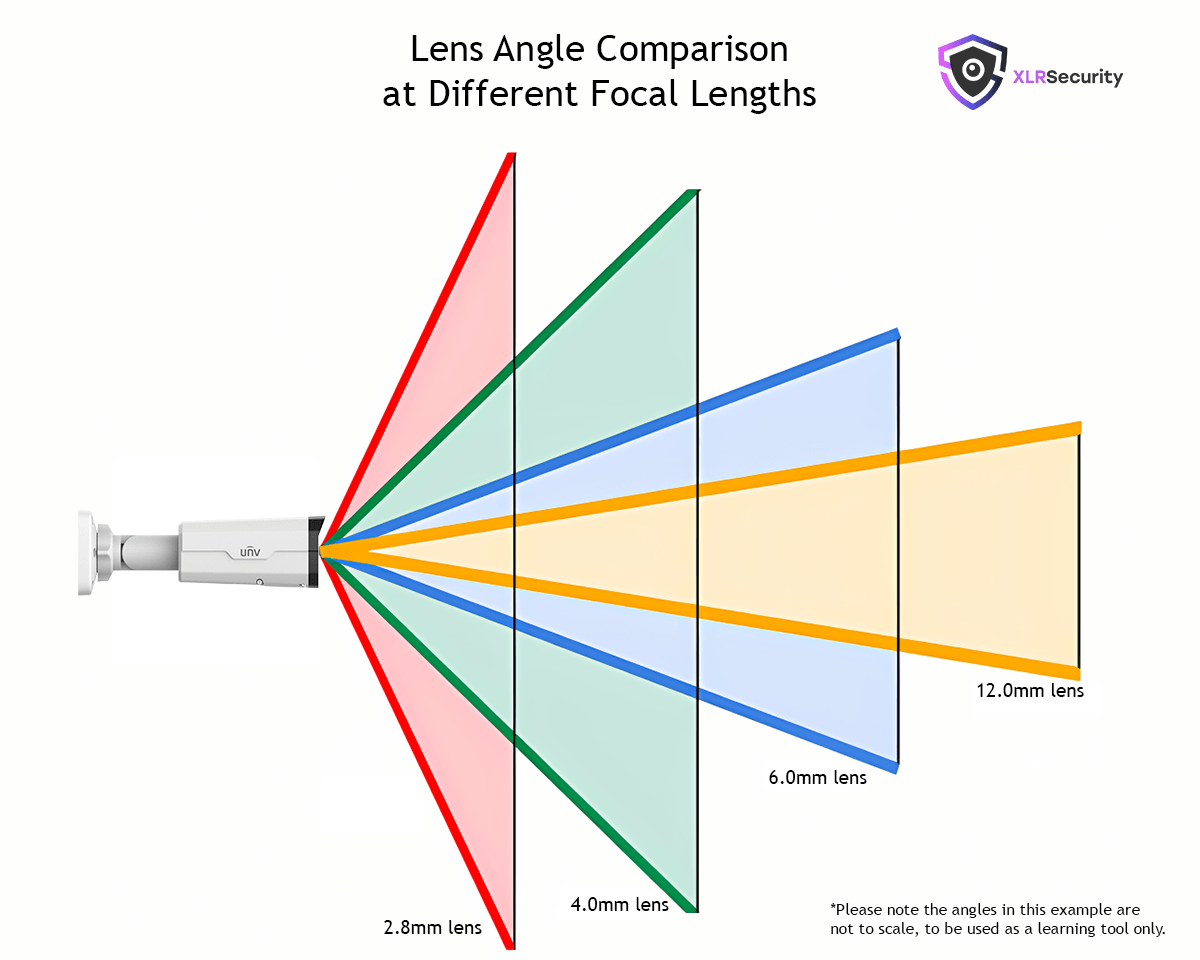
Testing Fixed Lens Types – Camera Hardware
To demonstrate the difference between a 2.8mm vs a 4.0mm lens, we installed two cameras in front of our office. The cameras we chose to install were Uniview’s 5MP LightHunter dome cameras: IPC325SB-DF28K-I0 & IPC325SB-DF40K-I0.
These are standard fixed lens domes with an IP67 rating for outdoor weather resistance and LightHunter technology for excellent image quality in low light environments. In terms of lens focal length and viewing angle, here is how the two cameras compare:
- Resolution – 5MP / 2880*1620@30fps
- Lens – 2.8mm Lens
- Angle of View (H) – 96.1° / Angle of View (V) – 55.3°
- Resolution – 5MP / 2880*1620@30fps
- Lens – 4.0mm Lens
- Angle of View (H) – 78.7° / Angle of View (V) – 44.9°
Difference in Viewing Angle (H) – 17.4° / Difference in Viewing Angle (V) – 10.4°
Image Comparisons – 2.8mm vs 4.0mm Lens
First, we have a snapshot from the 2.8mm lens camera for our reference. The camera quality is sharp, the colours are vivid, and the angle is wide enough to completely cover eight parking spaces.
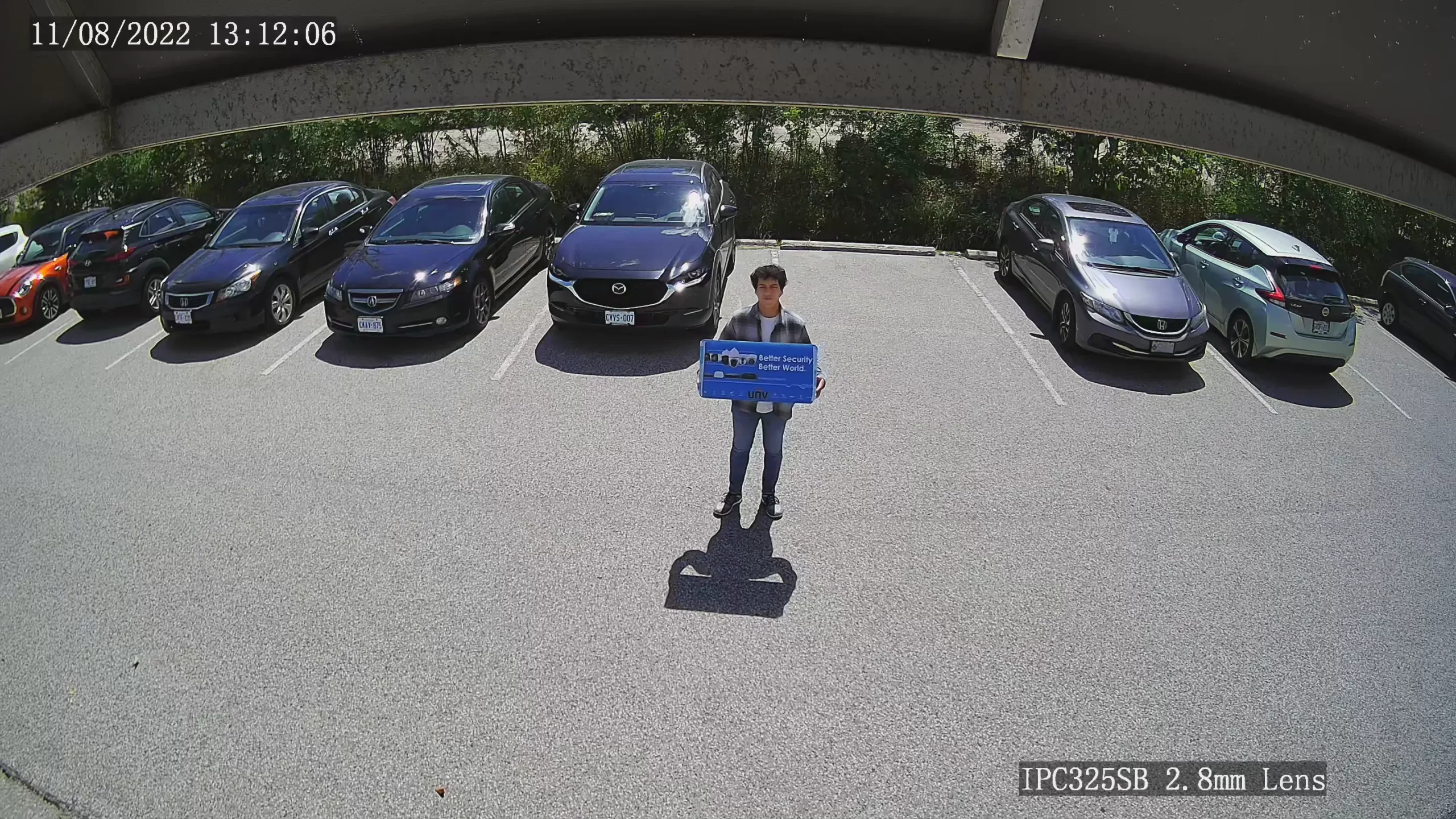
Next, we took a photo from the 4.0mm lens dome camera for comparison. The camera quality is just as sharp as before, however, now we are covering a smaller angle. This camera is able to cover about six parking spots.
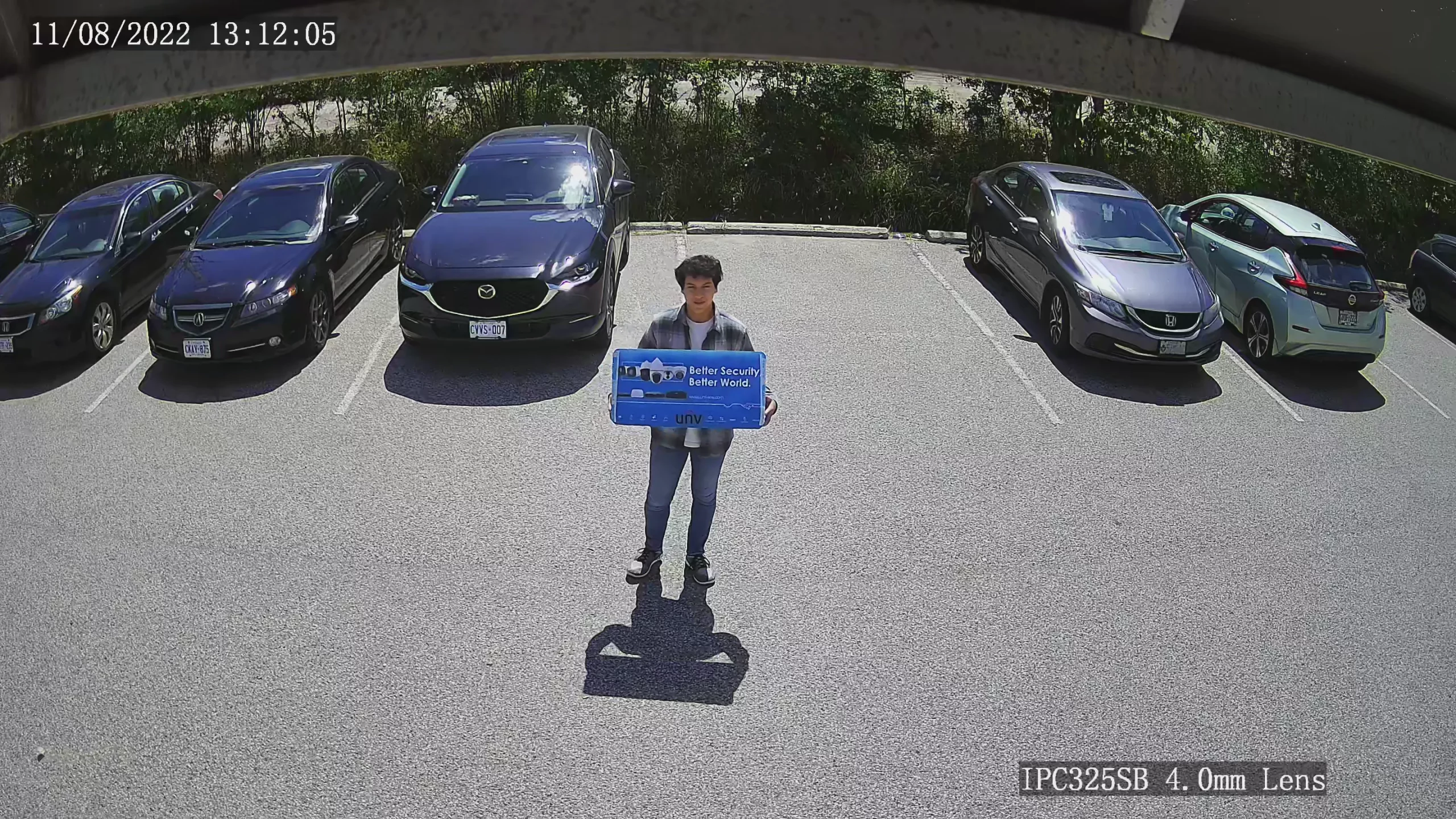
Finally, we compared the level of detail in the two shots by enlarging the snapshots and comparing them side-by-side. There is definitely a noticeable increase in fine details from the 4.0mm lens camera. You can almost read “www.uniview.com” from the poster on the right side, while on the left side it’s completely obscured.
Additionally, we can see more details in the face of the person holding the sign through the 4.0mm lens camera. If you don’t need to cover a large area, purchasing a 4.0mm lens security could be a good choice!
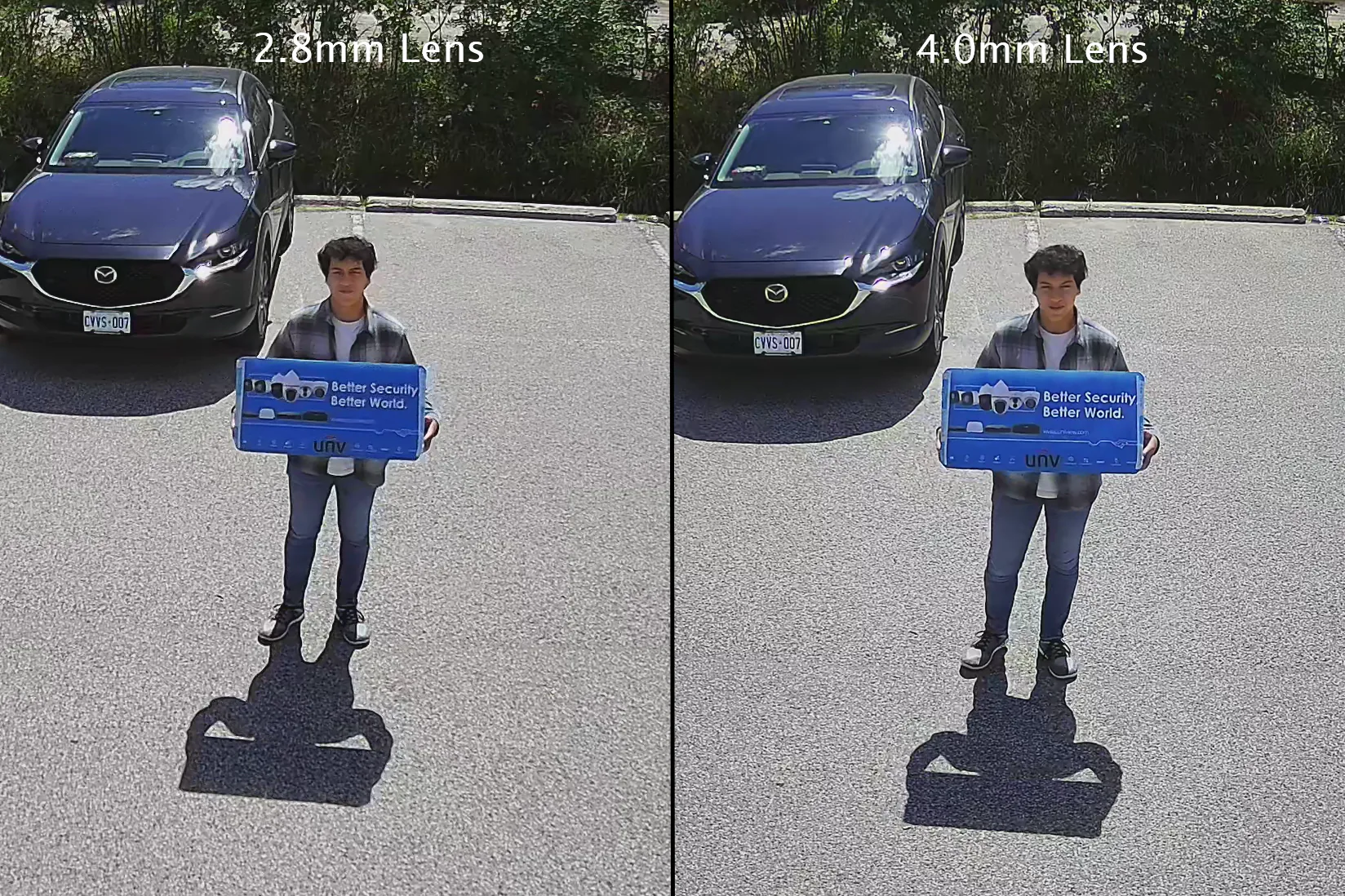
Final Thoughts
If you’ve ever wondered what the difference was between a 2.8 and 4mm lens, I hope your curiosity was satisfied by our demonstration. Overall, it’s about a 20% difference in viewing angle and image quality between the two lens types.
For suggestions on which lens type to purchase for your project or other related inquiries please contact XLR Security via email at info@xlrsecurity.com or call us at 905-794-5508. We look forward to helping you with any security-related business or activities!

